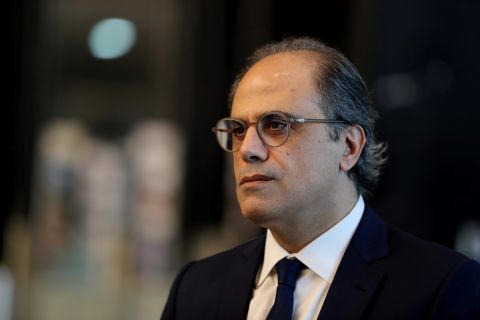Oil prices climbed sharply higher Monday as traders reacted skeptically to an OPEC pledge both to boost output by 800,000 barrels a day and to consider pumping even more if markets fail to stabilize.
In New York the price of a barrel of light sweet crude for October delivery surged 1.51 dollars to end the day at 35.14. On Friday light sweet crude fell 1.76 dollars to 33.63.
In London, the price of a barrel of North Sea crude soared as high as 33.53 dollars after having dipped earlier in the day as market players initially appeared encouraged by an OPEC decision to increase production by 800,000 barrels a day on October 1.
OPEC Secretary-General Rilwanu Lukman, speaking in Vienna where OPEC ministers had gathered, said the cartel was also prepared to pump even more oil if prices did not begin to ease.
But neither OPEC's firm decision nor Lukman's subsequent pledge proved sufficient to convince traders that enough oil would actually get on to the market to meet demand -- notably in the US market, where pre-winter inventories of heating oil are down markedly from last year.
"No one is quite sure whether the supply OPEC has promised will be sufficient," said Lawrence Eagles, an analyst with the GNI brokerage, ascribing the latest spurt in prices to "bargain-hunting."
"The market wants more oil. The one disappointing factor from this whole OPEC meeting is that they haven't raised output immediately."
For analyst Chris Schachte of GSC Energy in Atlanta, Georgia, the impact of the organization's response will depend on "whether OPEC will actually pump that increase or whether it will just ratify the overproduction they were already pumping."
He said the cartel had been estimated to have been turning out between 700,000 and 800,000 barrels a day above its quota. But he also noted that Saudi officials maintain that the extra 800,000 barrels -- above the current overproduction -- will indeed make it onto the market.
"From that standpoint, things look good, but you can't be sure."
Another specialist, W.H. Brown of New York-based consultants W.H. Brown and Company, warned that "the real physical impact" will be limited to 300,000 barrels a day because apart from Saudi Arabia and the United Arab Emirates most OPEC members are unable to pump more.
"When you add it all up, it really doesn't come to more than 300,000 barrels a day. No one else (apart from Saudi Arabia and the UAE) can produce these new quotas. They're maxed out."
OPEC ministers had come under heavy pressure from oil consuming nations, notably the United States and members of the European Union, to stem a price spike they warned would aggravate inflation and curb global growth.
Soaring prices also sparked unrest and protests in Belgium, Britain and France.
In the United States Barclays Capital economist Henry Willmore predicted that the country's oil import bill would increase by about 55 billion dollars this year, or more than 0.5 percent of gross domestic product.
That could help shave one percent off US economic growth in 2001, he said.
While the rise in energy costs has not as yet upset US inflation expectations, "the longer it continues ... the greater the risk that workers will seek and receive wage increases to offset the loss in purchasing power cause by higher energy prices," Willmore said.
OPEC insists that high taxes imposed by oil consuming nations are behind the latest trend in prices, along with speculation and supply bottlenecks – NEW YORK (AFP)
© 2000 Al Bawaba (www.albawaba.com)








